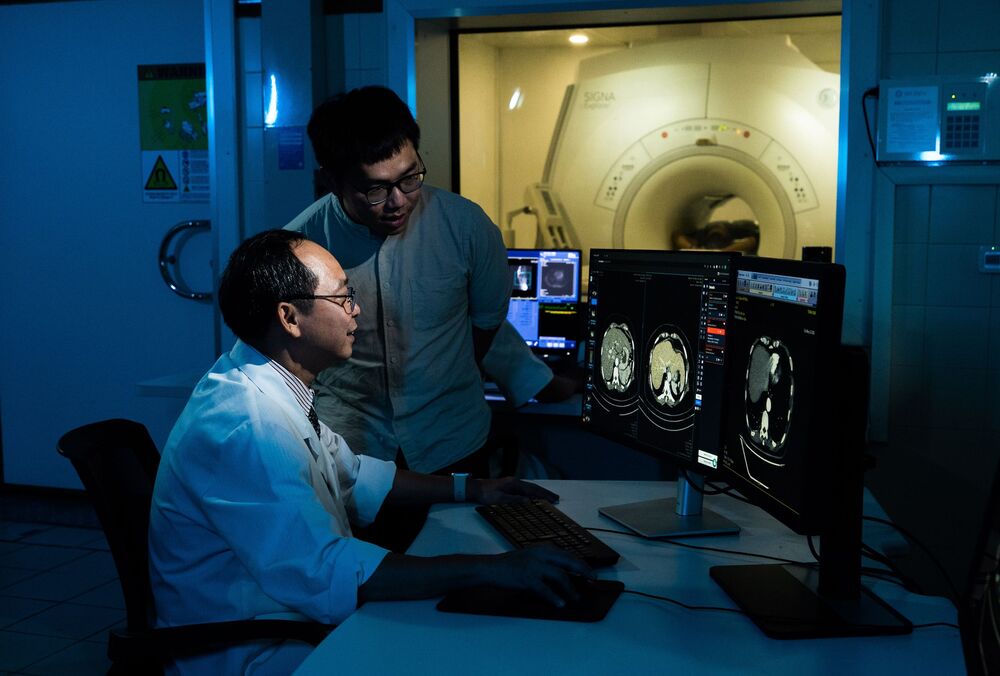
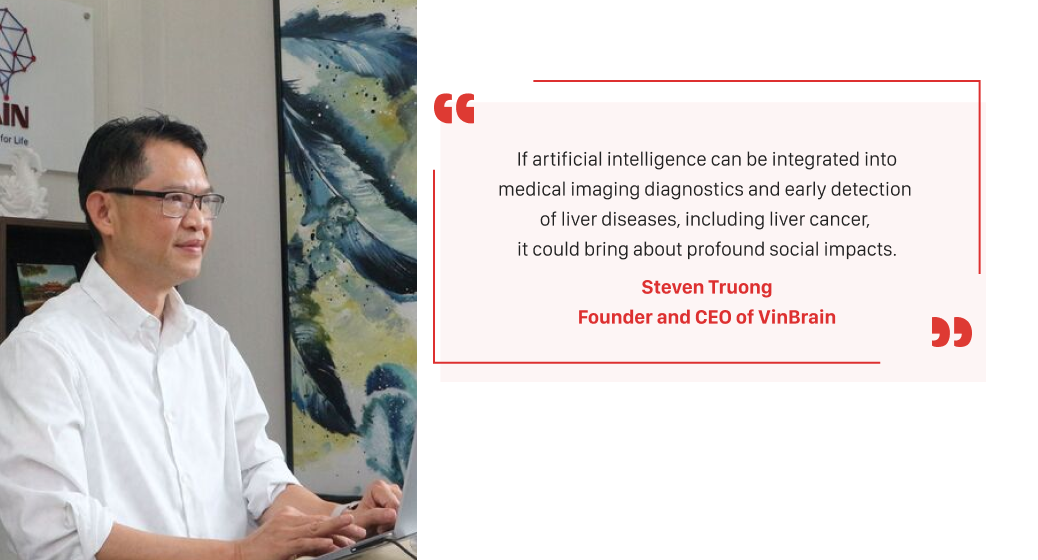
VinBrain on Choosing Challenging Realms
According to statistics from K Hospital, liver cancer is the leading cancer in Vietnam. Globocan 2020 data shows that the new incidence of liver cancer in Vietnam is 26,418 people each year, accounting for 14.5% of the total cancer.
Liver cancer has the leading number of deaths in Vietnam with 25,272 cases, accounting for 21% of total cancer deaths, 3.8 times the total number of deaths due to traffic accidents in 2020 (6,700 cases).
In the world, liver cancer is also a common disease. The disease has a very high mortality rate due to its silent progression, most of which are detected late. According to leading experts, the most important thing in treating liver cancer is early detection.
"If artificial intelligence can be applied to support image diagnosis and early detection of liver diseases and liver cancer, it will bring great social impact," Mr. Steven Truong - CEO of VinBrain shared.
Mr. Hung called this a difficult problem, but attractive to VinBrain now that artificial intelligence (AI) technology can help patients and doctors.
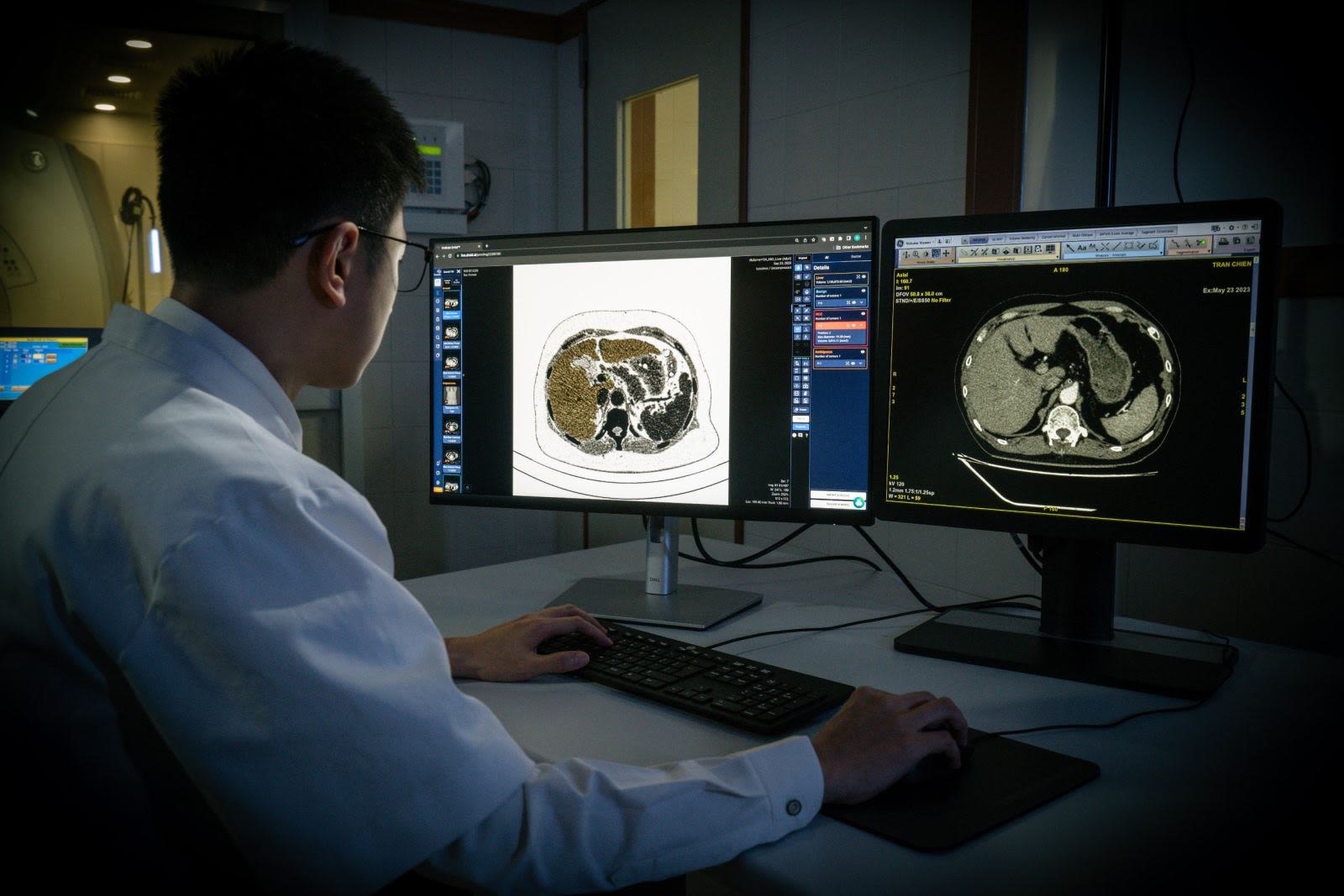
The CEO believes that, to do high-tech, global work, businesses like VinBrain must engage in difficult, pervasive topics with great growth potential.
VinBrain's DrAid™ is known as one of the pioneering solutions in the world applying AI technology to support cancer diagnosis and treatment, especially liver cancer. At the same time, this is also the first AI solution in the region approved by the US FDA (for the DrAid™ Chest X-ray Screening line).
According to Mr. Steven Truong, developing AI is inherently difficult, developing AI for specific fields such as healthcare is even more difficult because of its high complexity. Besides, the health sector in general does not have enough clean, consistent data, as well as lacking talent to develop artificial intelligence.
"Not to mention, in the process of developing DrAid™, experts and doctors need to evaluate and evaluate continuously. Because by nature, AI cannot be perfect from the beginning, but must always learn and improve over time. ", VinBrain CEO emphasized.
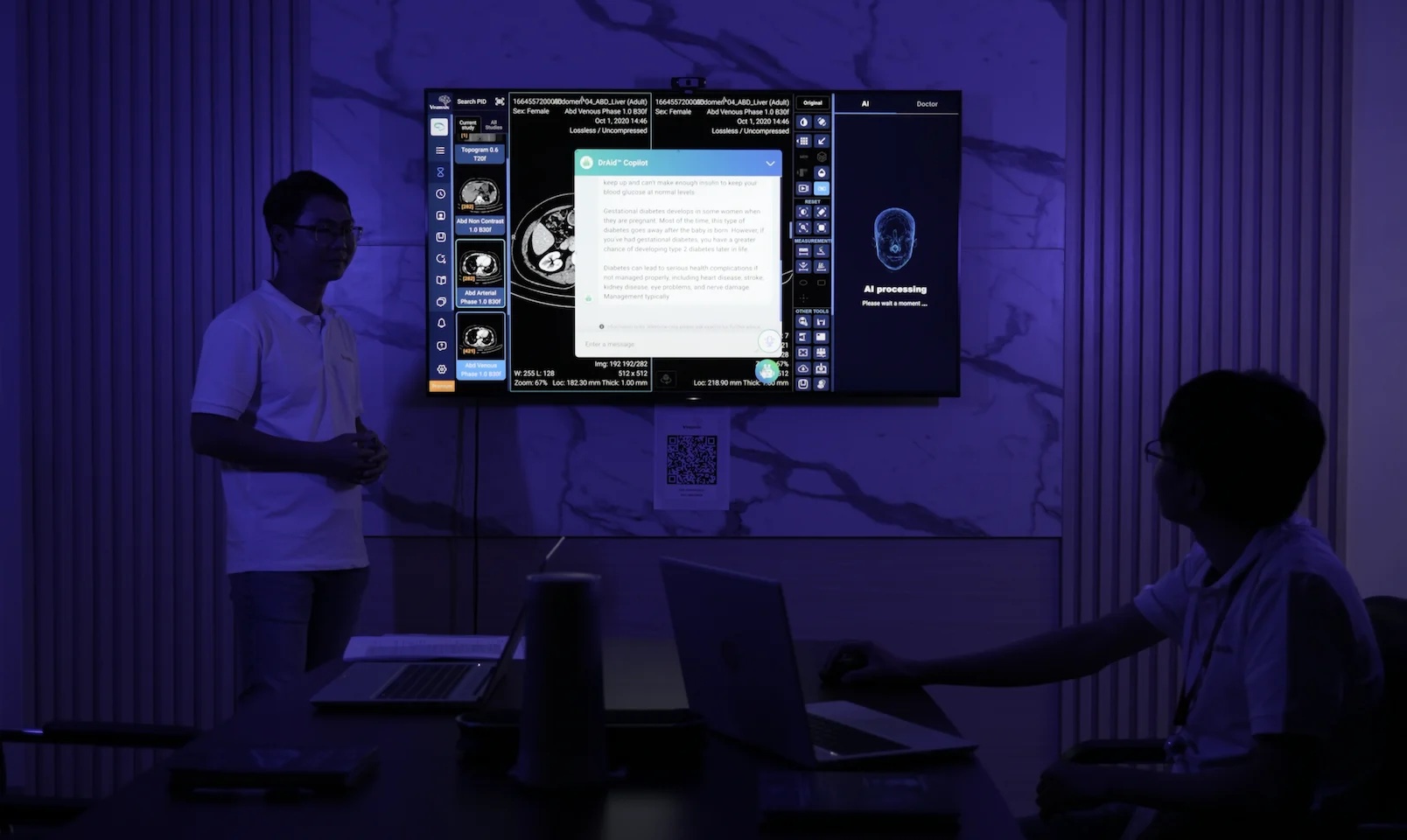
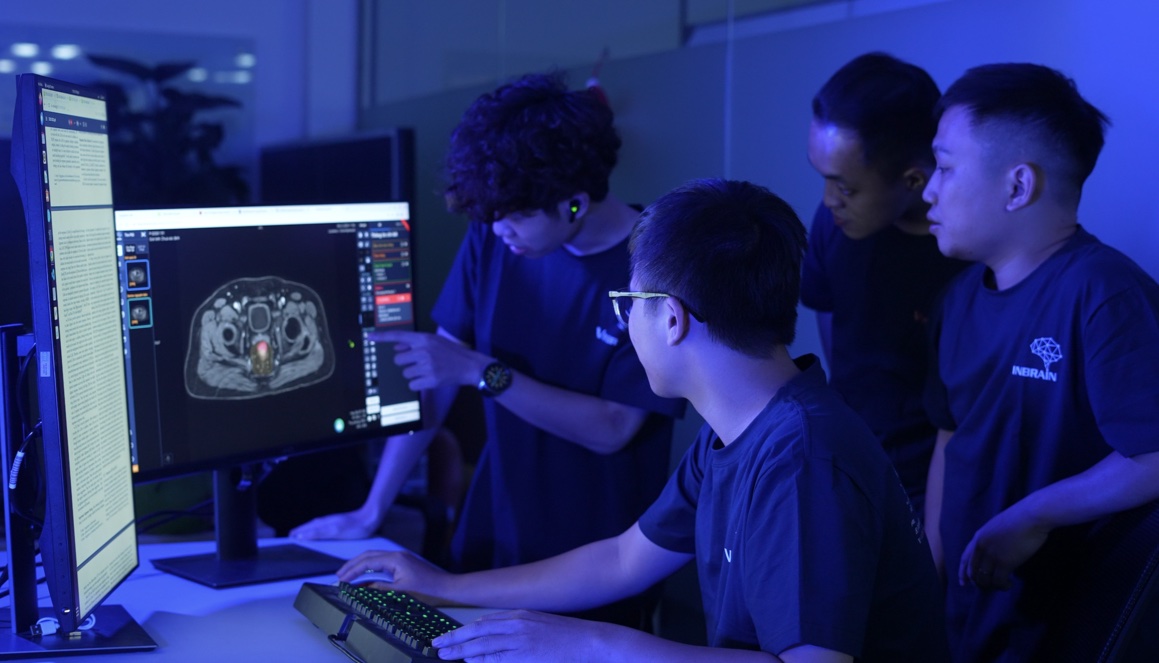
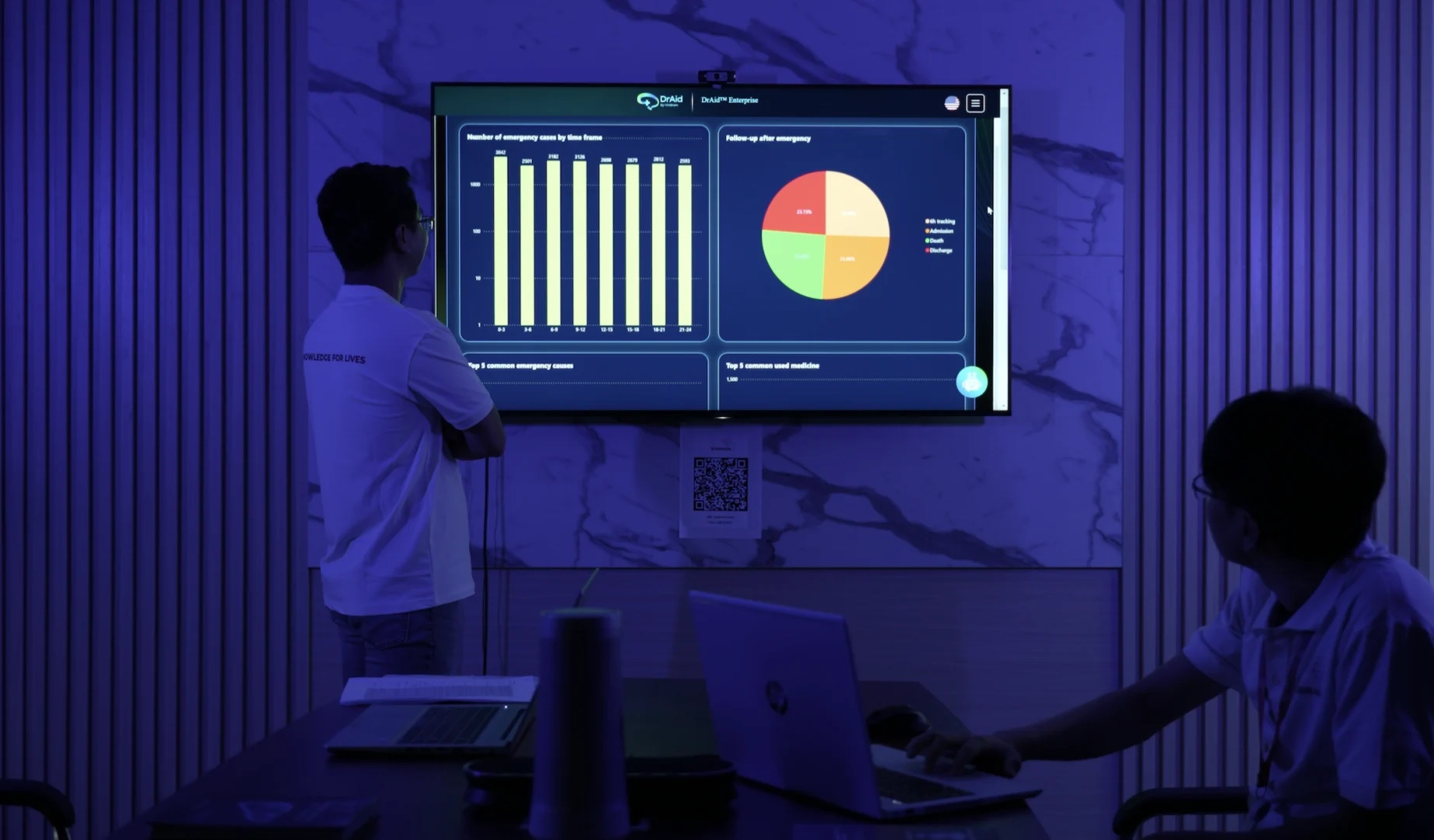
Talking about the journey of developing DrAid™ to support image diagnosis in general and liver cancer treatment in particular, Mr. Truong said, the first step is to collect and clean raw data such as medical images. was taken.
According to Mr. Truong, this step is especially important, because VinBrain needs to select images that meet standards from a database of 4 million images in both Vietnam and around the world. Before being included in big data, these images will be de-identified, ensuring security.
After obtaining a standard database, these images continue to be classified and labeled by experienced specialists.
After labeling, this data is fed into machine training based on the deep learning model, along with being continuously appraised and evaluated until completion. The final step is to pilot and test AI in hospitals.
Up to now, VinBrain's AI has been applied in more than 100 hospitals in Vietnam, including over 175 hospitals in the world.
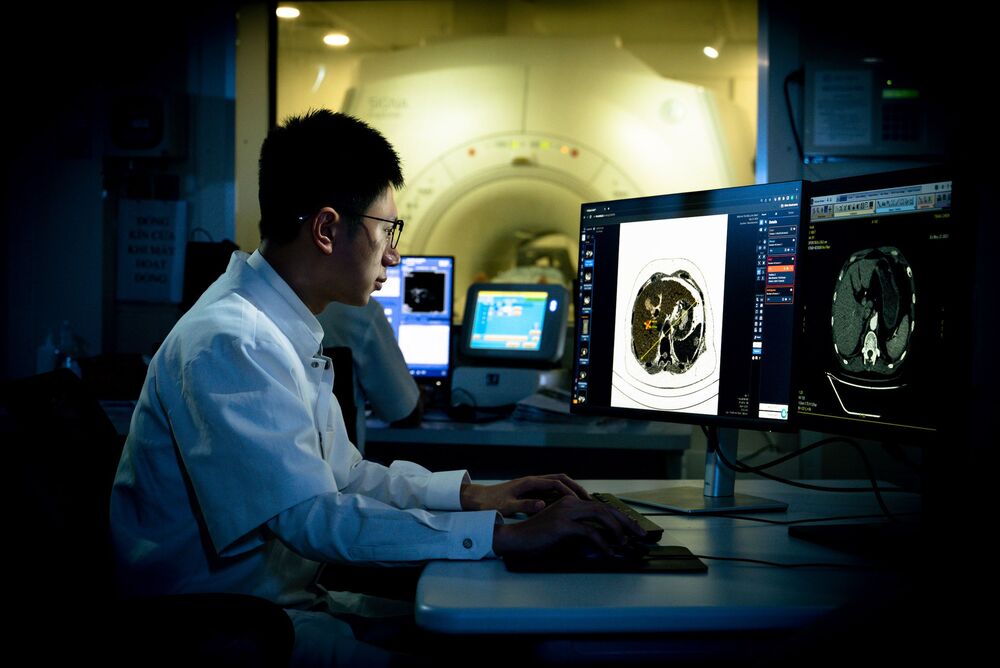
In fact, DrAid™ solution has demonstrated outstanding performance when reducing the time to read images of cases such as liver cancer from 30 minutes per case to only 5 minutes per case, and most importantly, it helps doctors detect detect the disease in its early stages, with the ability to detect liver lesions that are only 5mm in size.
Since then, this technology has helped oncologists plan treatment and screen for liver cancer, with the ability to provide accurate results up to 90%, while increasing the rate of successful treatment later.
According to Mr. Hung, VinBrain's advantage with the DrAid™ solution lies in its rich, high-quality large data warehouse. At the same time, the business has built trust from the medical team during the Covid-19 pandemic, when supporting the Vietnamese health sector in epidemic prevention.
In particular, VinBrain's approach when introducing artificial intelligence into the hospital system is also considered humane and friendly.
The company sets the criteria that AI will not replace the team of doctors, but acts like an assistant, promoting the effectiveness of diagnosis and treatment.
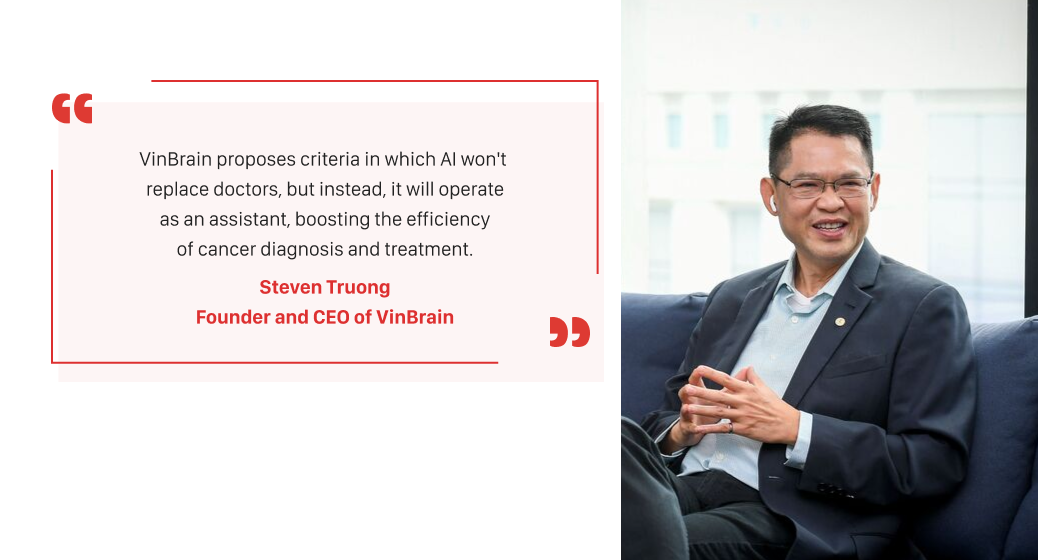
Vietnamese Artificial Intelligence is Sold to Americans
"AI is a new technology so everyone who hears it wants to use it. But putting it into practice is not an easy story," Mr. Truong Quoc Hung said.
To bring the artificial intelligence of the DrAid™ solution to Vietnamese hospitals, the VinBrain team had to approach and spend a lot of time with medical staff.
The problem that VinBrain poses is that AI helps save time in screening and reading images, as well as bringing real efficiency to cancer diagnosis and treatment activities, in the face of the current situation in which Vietnamese hospitals are always in dire need. patient overload.
"Suppose that one day the hospital has 100 images that need to be read, of which 40% of images from medical records have been classified and screened by AI as normal and do not require treatment. So doctors only need to focus Spend time on the remaining 60 images," Mr. Hung explained.
Or like the process of screening and detecting tuberculosis, which takes a lot of time, with testing costs reaching more than 1 million VND, combining artificial intelligence to screen only takes about 30 seconds and a few dozen thousand Dong.
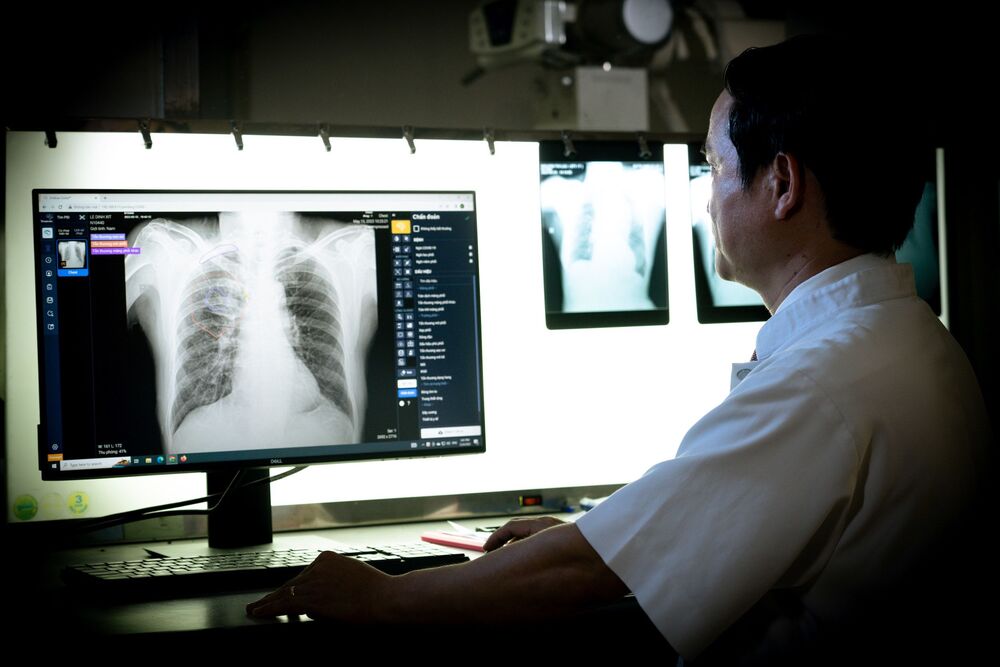
In fact, DrAid™ is not only well received in Vietnamese hospitals, but hospital systems in the region such as Singapore and Indonesia have also applied it and highly appreciated its diagnostic and treatment effectiveness.
In particular, VinBrain's DrAid™ solution has been commercialized in the US - a powerhouse of artificial intelligence, signing a contract with partner Nutex Health - the owner of a system of 22 hospitals in the US.
VinBrain CEO believes that the story of commercializing Vietnamese intellectual technology in the US is very interesting, when DrAid™ can support the screening and diagnosis process of over 52 abnormal signs in the lungs using X-ray straight chest images.
"Nutex Health specializes in emergency services, but at night there is often no doctor on duty to read images. Taking advantage of this factor, DrAid™ was chosen to support emergency doctors, providing treatment at night. night," Mr. Truong said.
Of course, to be able to commercialize in the US, CEO VinBrain admitted that Vietnamese businesses had to compete with many big competitors. Nutex Health highly values the DrAid™ solution based on its quality, technological capabilities and reasonable price.
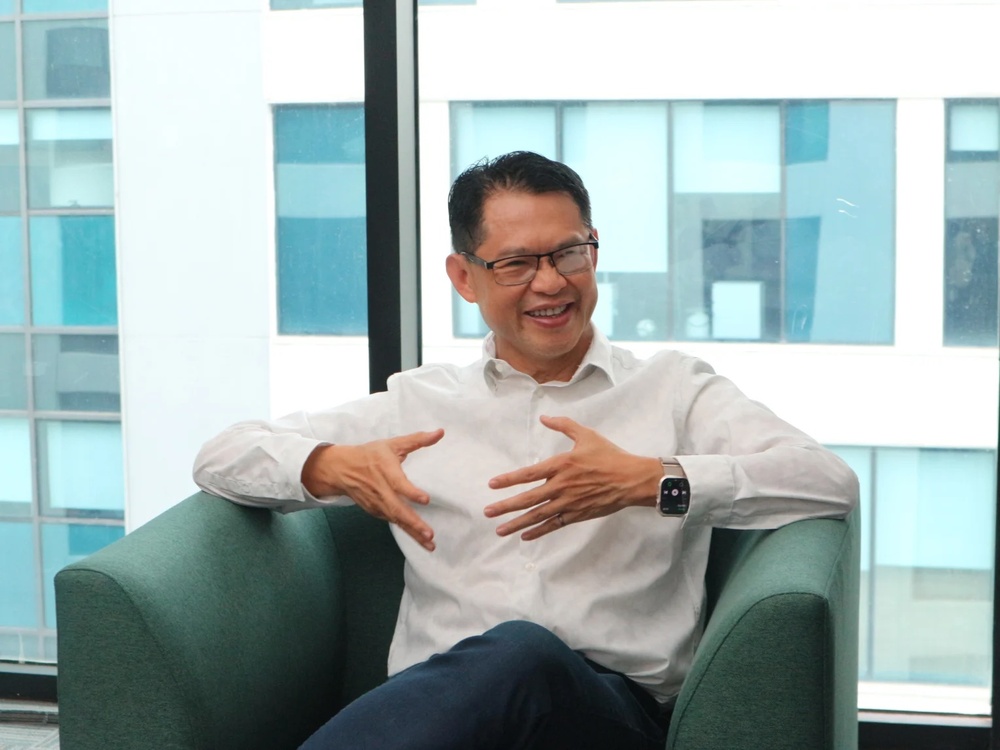
According to CEO Steven Truong, the fact that an American customer is willing to pay for Vietnamese artificial intelligence technology in the medical field is something to be proud of.
With the current growth and expansion rate, Mr. Hung is confident that VinBrain will soon be profitable by 2025, which can be considered fast compared to many artificial intelligence companies in the world.
The year 2023 is also considered a successful year for VinBrain, when the business signed and became a trusted partner of many leading businesses such as Microsoft and Nvidia.
Recalling the time he returned home to start a business with VinBrain after 26 years of living and working abroad, Mr. Truong called this a precious "fate".
It was in the summer of 2018, CEO Steven Truong returned to Vietnam to take care of his mother who had a stroke. When observing people coming to the hospital to line up to get medical examination numbers, he asked the question whether he could use his knowledge to contribute to Vietnam's health industry, or even further, to bring medical technology of Vietnam to the world.
"There are patients who have to travel from their hometowns at 3-4 am, and have to wait until noon just to see a doctor for about 5 minutes. Seeing this, I felt very heartbroken and started to develop the idea of developing AI technology for the medical field," Mr. Steven Truong recounted.
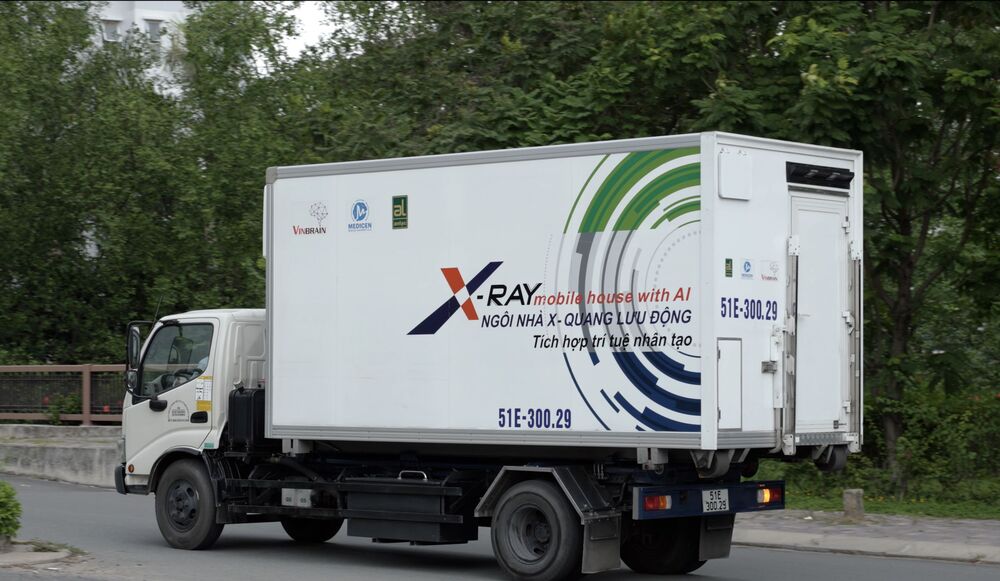
Before becoming CEO of VinBrain, Mr. Truong had many years of experience in technology, having studied software engineering at the University of Toronto - Canada, earned a Master's degree in the US, and 13 years with Microsoft Corporation in the role of Director of AI Engineering and Incubation.
Later, Mr. Truong Quoc Hung was introduced by a few friends to Mr. Pham Nhat Vuong - Chairman of Vingroup, and was convinced to build VinBrain from a common point of great pride and love for the nation.
"At that time, I didn't know who Vingroup was. Because I lived far from home, I only heard about Vingroup a few times. When I met Mr. Vuong, I deeply felt the love we both have for the Vietnamese people." Nam", Mr. Truong shared.
With VinBrain, CEO Truong Quoc Hung believes in the social values that the business has been creating in the medical field, especially when this is considered the decade of artificial intelligence.
"AI is a long-term investment problem, but will bring great impact, especially AI for healthcare. The world currently has not identified a leading unit in this technology, so this is also one of advantages for VinBrain to continue to set goals and develop further," Mr. Truong affirmed.
Top